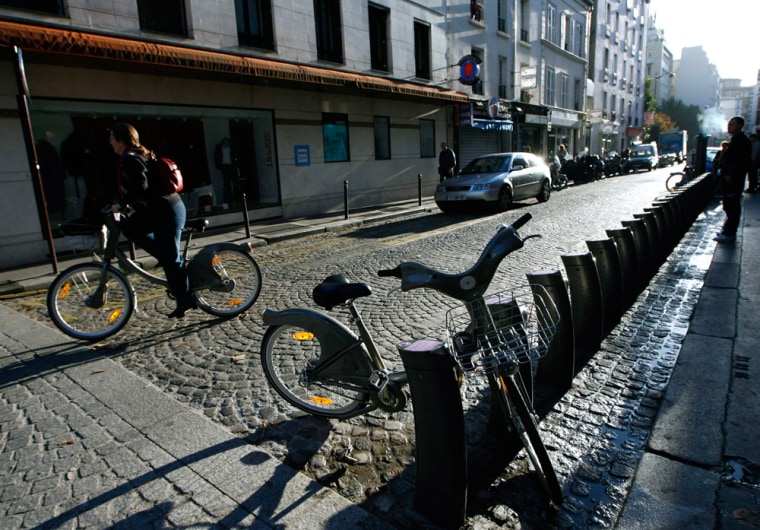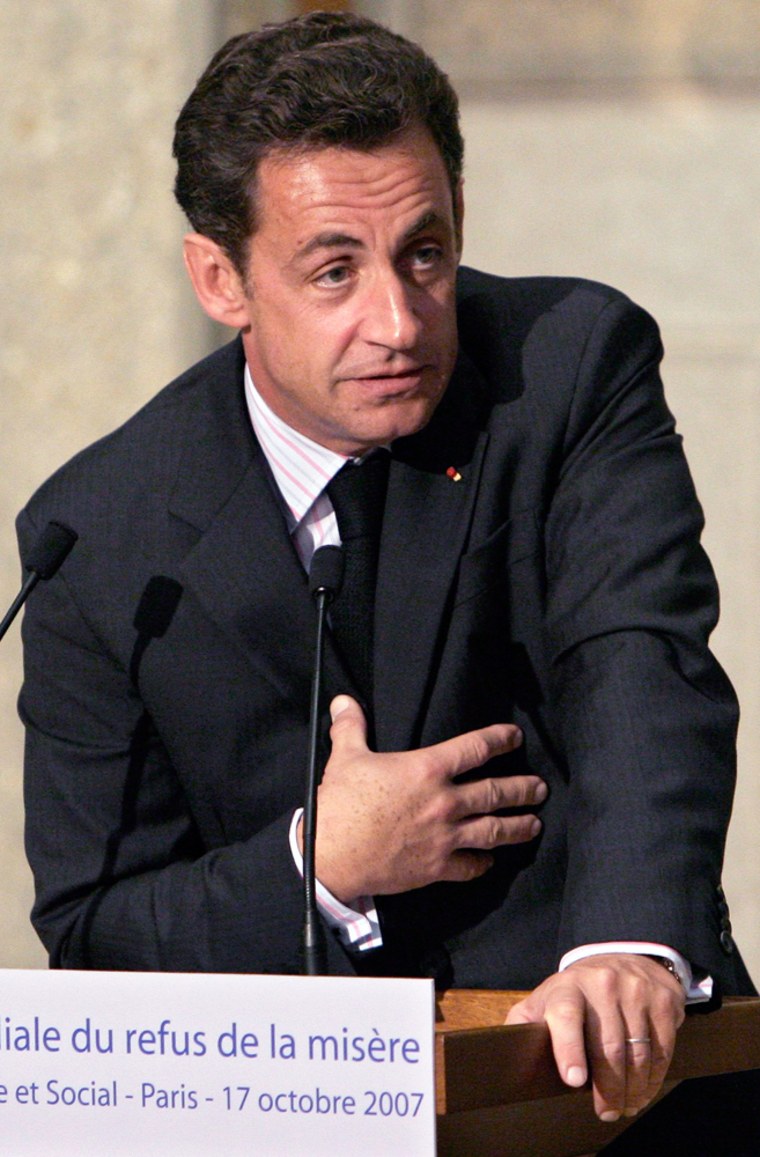Paris’ subways slowed to a halt and rail lines were disrupted Thursday during a massive strike in France that was expected to give President Nicolas Sarkozy his first real test after five months in office.
Unions are protesting Sarkozy’s plan to trim special retirement packages for some workers, part of his pledges to cut back on costly public services. The strikes began late Wednesday and were to last through Thursday.
The first mass-scale problems for travelers and commuters were expected at Thursday morning rush hour. Paris transport authority RATP said traffic would be “virtually nil” on most of its lines. The national rail network said it would be “nearly paralyzed.”
5:30 a.m. bottlenecks
Eurostar trains to London and connections to neighboring European countries were also to be disrupted. With commuters relying on their cars, bottlenecks were expected as early as 5:30 a.m. on major routes into Paris, the national road information service said.
Sarkozy is facing a number of challenges simultaneously as the economy lags, despite his pledges to invigorate it, and signs of discord arise within his own party over the president’s policies.
The president himself appeared unfazed, saying Tuesday night he would push through the reforms regardless of public protest because “that’s what I was elected for.” Sarkozy was to be out of the country at an EU summit in Portugal on Thursday.
While France’s strikes are famously common, the country has not had any serious ones since Sarkozy took office. This week’s could be the biggest in years.
Labor leaders hoped the walkout would recall 1995 strikes that paralyzed the country and sapped then-President Jacques Chirac’s appetite for reform. Those strikes — also involving retirement rights — dragged on for three weeks.
Other unions may strike
Transit workers initiated the strikes, but employees of state-run electricity, gas and other services also could take part.
Most teachers were not planning to strike, but some schools were expected to close because of transport difficulties.
Air travel also faced potential disturbances, according to civil aviation authorities, who said there was a risk flights would be modified, particularly early in the day if administrative and airport personnel had trouble getting to work.

The strikes could overflow into Friday. Three train federations were calling for a daily vote on whether to extend the strikes. And even if the protests end Thursday, train traffic was expected to remain “greatly disrupted” the next day, SNCF official Guillaume Pepy told Le Parisien newspaper.
The pension plans under threat, which cover workers at an array of different companies and institutions, were originally devised to give advantages to those in physically demanding jobs, such as miners and train drivers.
Workers covered by the special pensions are able to retire earlier and on more generous terms than the vast majority of the French working population.
Sarkozy, who pledged changes to France’s labor protections during his election campaign earlier this year, deems the benefits too costly, outdated and unfair.
Labor Minister Xavier Bertrand said Wednesday that the reforms were “indispensable.”
The head of the CGT union, Bernard Thibault, urged the government to start “real negotiation” over the retirement reform or face more strikes, according to an interview with Le Monde published Wednesday.
And on a personal level, a respected news source reported Wednesday that Sarkozy and his wife, Cecilia, have informed a judge they are separating. The president’s office would not comment on the report, which comes after weeks of rumors of a split.
